Once you have your strategy, then defining the overall Employee Lifecycle is the place to start as this will define the potential scope of your EX activities over the long term. The Employee Lifecycle encompasses every interaction between an employee and an organisation, which covers a huge number of processes, journeys and experiences.
The EXO Toolkit
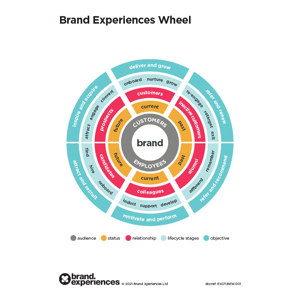
EXO Brand Experiences Wheel
Our experience has been that whereas senior leaders see the benefit of spending money to attract and retain customers, they’re less keen on spending money on attracting and retaining employees. Respondents to the 2020 Edelman Trust Barometer ranked the following groups in order of importance to a company achieving long-term success: Customers 38%, Employees 37%, Shareholders 13%, Communities 12%. Almost neck and neck between EX and CX!
We see the ‘brand experience’ as the outcome of EX and CX. If you hire rubbish people and give them a rubbish experience, then they’ll provide a rubbish service to your customers. We look at it like EX x CX = BX2. In other words, get both right, and you’ll offer the best possible brand experience.
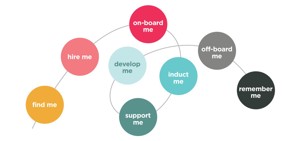
EMPLOYEE LIFECYCLE
It’s important to identify the ‘moments that matter’ throughout the Employee Lifecycle. (Sometimes called ‘moments of truth’, or ‘wow moments’.) These are opportunities to surprise and delight an employee and make them feel all warm and gooey towards their employer. They may be viewed as the ‘soft stuff’ but they really are critical points in the Employee Lifecycle that will have a huge effect on the EX and therefore employee satisfaction.
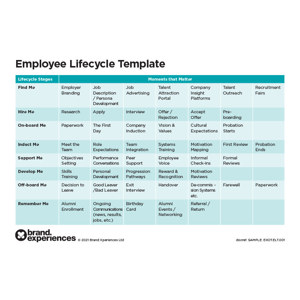
EMPLOYEE LIFECYCLE TEMPLATE
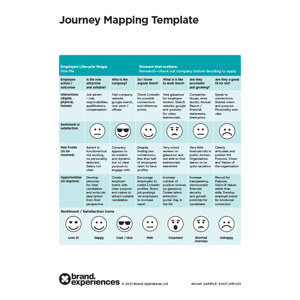
JOURNEY MAPPING TEMPLATE
Once you have defined the Employee Lifecycle and identified the Moments that Matter, it is useful to look at a particular experience in more detail using the Journey Map Template. The Employee Lifecycle is made up of several stages and each of these stages can include a number of Employee Journeys. The template is useful to map existing journeys as well as to improve or design new ones.

EMPLOYEE ARCHETYPE TEMPLATE
A key part of improving the employee experience is understanding the different types of employees within your organisation. The Employee Archetype Template allows you to build a representation of each different type of employee and build a better understanding of their hopes and aspirations, fears and concerns, needs and wants.
When looking to define or design employee journeys it is helpful to do this from the perspective of a single employee archetype to ensure that your employee experiences are as relevant as possible and personalised to the specific needs of each type of employee.
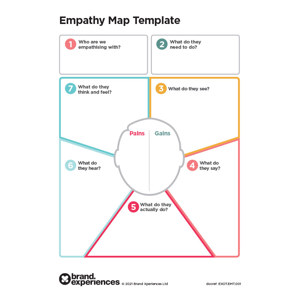
EMPATHY MAP TEMPLATE
Empathy Maps build on Employee Archetypes and force us to put ourselves in the shoes of employees to consider their emotional responses during specific employee experiences. An Empathy Map is a simple and easy-to-digest visual that helps us to better understand what our target users are: thinking and feeling; saying and doing; seeing and hearing. It can also help to identify any fears and concerns as well as their wants and needs.
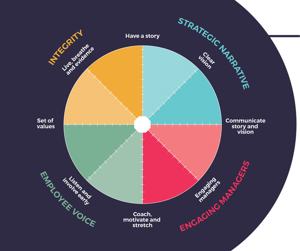
WHEEL OF ENGAGEMENT
To support with data gathering, you should workshop the wheel to discover what's going well and what needs improving. This will help you to define where you need to focus first. If you were to mark the scores on the spokes of the wheel (with the centre being 0 and the outside being 10), how would this get on if it were a bicycle wheel!
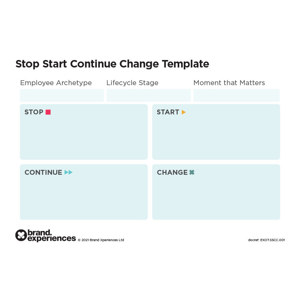
STOP, START, CONTINUE, CHANGE TEMPLATE
When we are testing and reviewing new or existing journeys and experiences, it is useful to have a structured retrospective approach to obtaining feedback. The Stop, Start, Continue, Change Template provides that structure.

Mike, Nicholas and the entire Brand Experiences team are true thought leaders in the employee experience space. Their free EXO toolkit serves as an essential starting point for any company beginning their EX journey, and Mojo, their online employee motivation platform, is a game changer for fostering productivity, wellbeing and intrinsic motivation. I can’t recommend Brand Experiences enough!
